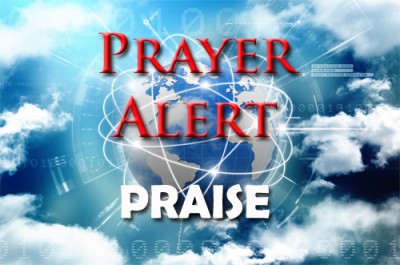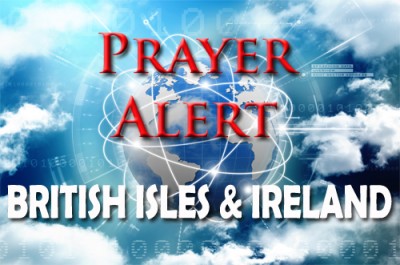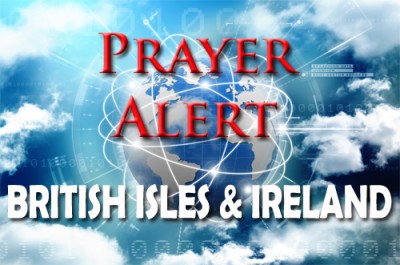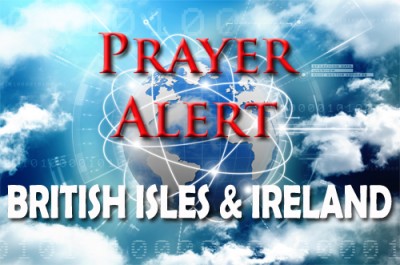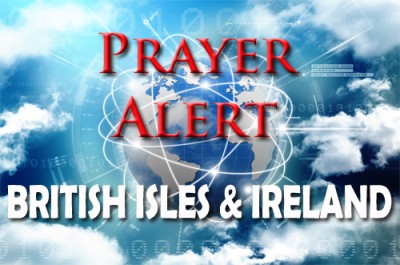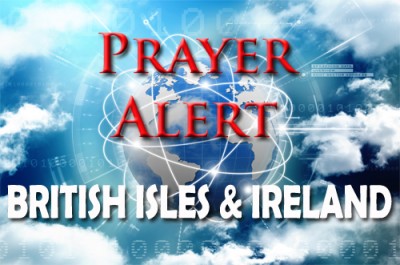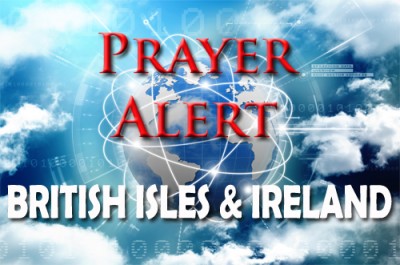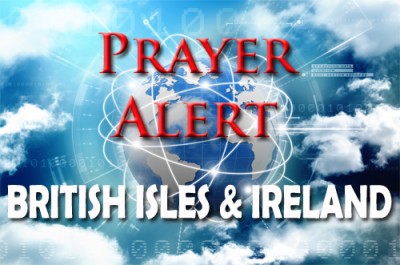Christians in New Year Honours list
04 Jan 2019Joel Edwards received a CBE for tackling poverty and injustice. Mervyn Thomas, founder and chief executive of CSW, was made a CMG, for working for religious freedom and advocacy on behalf of persecuted Christians globally. Stephen Addison received an OBE for services to young people in London; he founded Box Up Crime after leaving gang life behind. Gary Streeter, an MP since 1997, is the chairman of Christians in Parliament, mentors younger MPs, and is about to be knighted. Rev Paula Vennells received a CBE for services to the Post Office and charity. Margaret Atkinson received the MBE for services to the church and community in Huddersfield, and Rev Janet Lesley Jackson received an OBE for services to bereaved families.
Hunt orders review of persecuted Christians
04 Jan 2019Foreign secretary Jeremy Hunt has asked the Bishop of Truro to review the plight of persecuted Christians worldwide. The bishop will look at government efforts to help the 215 million Christians who faced discrimination and violence last year. Officials say violence against Christians is rising dramatically, with an average of 250 killed every month. The review will map the persecution of Christians in key countries in the Middle East, Africa, and Asia. Mr Hunt said the UK ‘must do more. So often, the persecution of Christians is an early warning sign of the persecution of every minority.’ He added, ‘Britain has long championed international religious freedom.’ The review, due to be completed by Easter, will analyse current Government support and offer ambitious policy recommendations.
Channel migrants: legalities
04 Jan 2019Home secretary Sajid Javid is under increasing pressure to deal with the rising number of migrants crossing the Channel. As some MPs call on him to deploy the Royal Navy, he insists that there is ‘no easy answer’ to what he called a ‘major incident’ unfolding off the south coast. Over 220 people have attempted the crossing in small boats since November 2018. Many of them are university-educated Iranians or Syrians. People-smugglers tell migrants they must enter the UK before ‘borders shut properly’ after Brexit. One refugee group said that most of those trying to cross are Kurds: see https://www.bbc.co.uk/news/world-middle-east-29702440 Kent Refugee Action Network said the Kurds could have genuine asylum claims, adding, ‘The Government needs to find a way to process their claims in France instead and then transfer them.’ Pray for UK and French authorities to share intelligence and work on a humane solution.
Channel migrants: call for compassion
04 Jan 2019The bishop of Dover, Rt Rev Trevor Wilmott, has urged greater compassion in the migration debate as new figures revealed an influx of lone child refugees among the boatloads of people crossing the Channel. In an appeal to the home secretary, he said, ‘It is crucial that we remember we are dealing with human beings here. We have been celebrating the season of hope and goodwill as we remember Christ’s birth: let’s not forget so soon that every person is precious.’ The rising number of boat crossings has prompted an increase in unaccompanied child refugees to levels not recorded since the Calais migrant camp was dismantled. One specialist facility caring for unaccompanied minors in Kent is caring for over twice the usual number.
National prayer for our nation
04 Jan 2019Christians In Government have issued an open invitation to all Christians to become involved in a national call to prayer, culminating in a week of prayer (24-30 March). At this key time in the UK’s history, thousands are expected to engage with this call to unite, pray, and bless our nation. There is power when brothers and sisters come together in unity, regardless of political views or denominations. The initiative will focus especially on a national day of prayer on 28 March, the day before the UK is due to leave the EU. This is a vision to mobilise and gather people across the UK to pray for our nation. Christians everywhere are invited to pray with friends and community, and to spread the message about joining or hosting events on that day.
The Foreign Office (FO) has been recouping the cost of repatriating young women who were forced into marriages overseas, prompting charities to criticise it for making women ‘pay for their protection’. Many of the 82 victims of forced marriage repatriated in 2016-17 had to pay for living costs incurred between making distress calls and returning home, as well as their airfare; others received loans which they had to repay. They had to give up their passports until they had repaid the debt, with a surcharge added after six months. But many could not find work because potential employers wanted to see their passport, which the FO held. Four young British women imprisoned and tortured at a ‘correctional’ religious school in Somalia ahead of expected forced marriages had to pay £740 to return home; they said the burden of having to repay the loans contributed to their becoming destitute.
Transforming Lives for Good (TLG)
04 Jan 2019Recent statistics reveal that one in ten children feel unable to cope with the school day. Almost two thirds of 10- to 11-year-olds worry all the time, and 70% of children and adolescents experiencing mental health problems have not had appropriate interventions at a sufficiently early age. TLG is a Christian charity helping churches to bring hope and a future to struggling children. School exclusion, poverty, holiday hunger, bullying, bereavement, family breakdown, or being in the care system can have a huge impact on a child's education. Some children struggle with a lack of confidence, have no positive role models, or just need an adult to talk to. TLG early intervention programmes give churches practical solutions to support families, children and schools in their community. TLG believes change is possible, so in all their work there lies an unchanging resolve to transform lives for good.
Politicians must make 'stark choices'
04 Jan 2019The shadow treasury minister Clive Lewis, in a newspaper interview, has said MPs must show leadership, and persuade consumers to make dramatic lifestyle changes, if devastating climate change and mass extinctions are to be averted. Cutting back on red meat and taking fewer flights are two of the ‘real, stark choices’ needed in the years ahead. Lewis said, ‘If you want your children and grandchildren to avoid food shortages, to avoid power shortages, to avoid biological degradation, biodiversity loss - if you actually want a planet that’s habitable - then we need to make some choices together, now, and some of them are about quite dramatic changes to how we live.’
